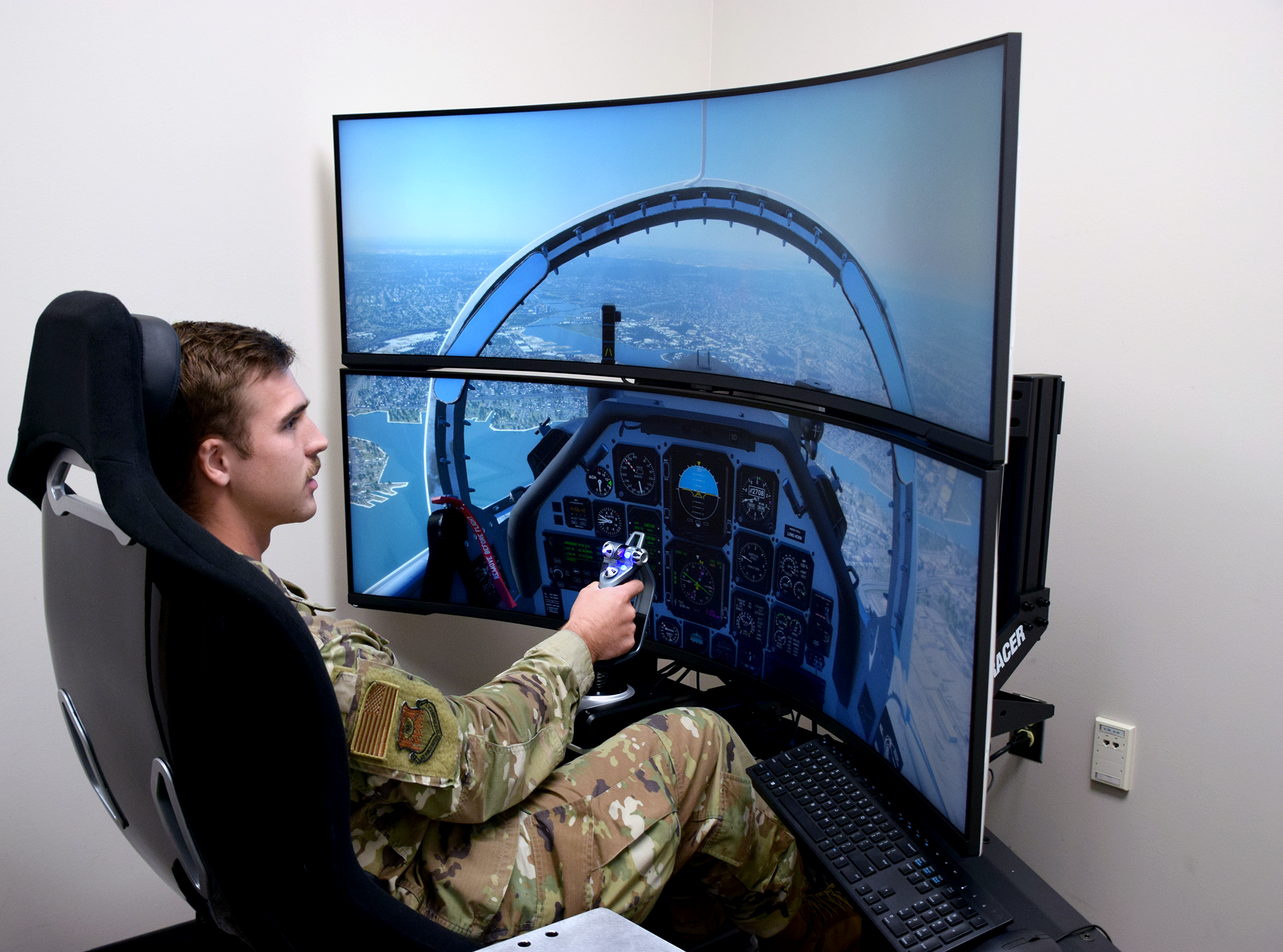Flight Simulators Offer Early Training to Students Awaiting Pilot Training

The Graduate School of Engineering and Management recently developed two flight simulator consoles that will provide AFIT's students awaiting pilot training initial exposure to aviation fundamentals. (U.S. Air Force contributed photo)
The Air Force Institute of Technology is hosting several
dozen United States Air Force Academy graduates awaiting pilot training (APT)
as full-time graduate students. Due to a systemic backlog, these future USAF
pilots are currently waiting up to 12 months after pilot selection before being
able to attend USAF’s Undergraduate Pilot Training (UPT) course. AFIT’s APT
students are pursuing 12-month accredited MS degrees, and are expected to complete
defense-focused research projects as part of their program requirement.
To prepare these students for their future occupational role
as USAF pilots, Maj. Jacob Maywald and Dr. Adam Reiman, Assistant Professors of
Logistics and Supply Chain Management within AFIT’s Department of OperationalSciences (AFIT/ENS), collaborated with AFIT’s Model Shop to develop two flight
simulator consoles. These simulators provide both screen-based and virtual-reality
simulation capability. The simulators, paired with AFIT faculty aviation
experience, provide APT students initial exposure to aviation fundamentals.
The simulators make use of commercial-off-the-shelf hardware
and software designed to provide users familiarity with the T-6 Texan II training
aircraft, which students will fly during UPT. This preliminary exposure is
expected to assist students in developing basic knowledge and procedural
memory, providing them a head start in their aviation training and improving
the initial quality of UPT students. The
simulators are available for any student at AFIT to use, with the intent of
expanding aviation academics in other Graduate School departments starting in
FY26.
In addition, AFIT faculty are looking to leverage the simulators to examine how simple experimental treatments might induce behavioral modifications leading to improved fuel-efficient flying. As part of AFIT/ENS’s Behavioral Operations Research Initiative, researchers are seeking to address the Deputy Secretary of the Air Force for Operational Energy’s (SAF/IEN) goal ‘to fly smarter, not less.’ According to SAF/IEN, the USAF consumes about 2 billion gallons of jet fuel annually, meaning that savings of just 2% of aviation fuel costs can lead to an annual savings upwards of $80 million.
Considering the enormous fuel consumption of USAF aircraft, fuel
efficiency initiatives might have an even greater impact from an operational,
and even environmental, perspective. “The impacts are more than fiscal; fuel efficiency
allows fighter pilots to loiter longer, mobility aircraft to carry more cargo,
and logisticians to reduce the fuel requiring pre-positioning or forward deployment,”
said Maj. Maywald.
“By co-opting future USAF pilots in our research initiatives,
we hope to instill into a cadre of young Air Force pilots an inherent
mindfulness of the effect of fuel consumption on operational effectiveness.”